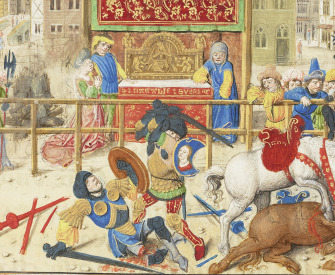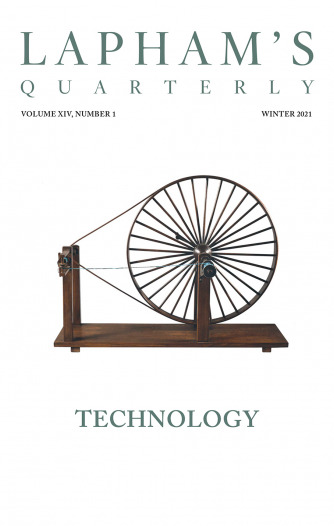One morning Reldresal, principal secretary for private affairs, came to my house and desired I would give him an hour’s audience.
“We are threatened,” said he, “with an invasion from the island of Blefuscu, which is the other great empire of the universe. It began upon the following occasion. It is allowed on all hands that the primitive way of breaking eggs, before we eat them, was upon the larger end; but his present majesty’s grandfather, while he was a boy, going to eat an egg and breaking it according to the ancient practice, happened to cut one of his fingers. Whereupon the emperor his father published an edict commanding all his subjects, upon great penalties, to break the smaller end of their eggs. The people so highly resented this law that, our histories tell us, there have been six rebellions raised on that account, wherein one emperor lost his life and another his crown. These civil commotions were constantly fomented by the monarchs of Blefuscu; and when they were quelled, the exiles always fled for refuge to that empire. It is computed that eleven thousand persons have at several times suffered death rather than submit to break their eggs at the smaller end. Many hundred large volumes have been published upon this controversy; but the books of the Big Endians have been long forbidden, and the whole party rendered incapable by law of holding employments. During the course of these troubles, the emperors of Blefuscu did frequently expostulate by their ambassadors, accusing us of making a schism in religion by offending against a fundamental doctrine of our great prophet Lustrog in the fifty-fourth chapter of the Blundecral (which is their Alcoran). This, however, is thought to be a mere strain upon the text; for the words are these: ‘that all true believers break their eggs at the convenient end.’ And which is the convenient end seems, in my humble opinion, to be left to every man’s conscience, or at least in the power of the chief magistrate to determine.”
From Gulliver’s Travels. This Lilliputian controversy is considered to be an allegory for British religious disputes of the sixteenth and seventeenth centuries between Roman Catholics and Protestants. “The politicians to a man agree,” wrote Swift’s friend John Gay of the response to the book, “that the satire on general societies is too severe.” In 1980 computer scientist Danny Cohen published a paper that borrowed the terms Big-Endians and Little-Endians to designate two different ways to order bytes in computer data systems.
Back to Issue


